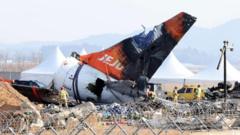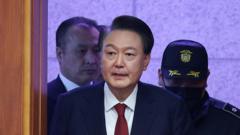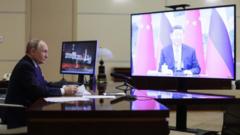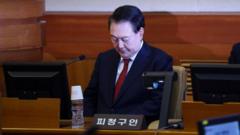After declaring martial law, South Korean President Yoon Suk Yeol has become the first sitting leader in the country's history to be arrested and charged with insurrection, now living in a jail cell and awaiting trial.
South Korea's President Yoon Suk Yeol: From Power to Prison

South Korea's President Yoon Suk Yeol: From Power to Prison
Yoon Suk Yeol's arrest marks a historic shift in South Korea's political landscape as he faces insurrection charges following his martial law declaration.
In an astonishing turn of events, President Yoon Suk Yeol of South Korea finds himself imprisoned under dire circumstances, a far cry from his days of power and privilege. Once residing in a grand mansion with elaborate parties and an extensive security detail, Yoon is now confined to a modest 107-square-foot jail cell, reduced to a diet of basic staples such as noodles and kimchi soup, and forced to sleep on the floor.
His arrest on insurrection charges signifies a significant moment in South Korean history, as Yoon became the first sitting president to be detained during a criminal investigation. This unprecedented development follows the issuance of an arrest warrant by a district court in Seoul, which transitioned Yoon from a temporary detainee to a criminal suspect, making him ineligible for release anytime soon. With criminal investigators poised to indict him within the next 18 days on allegations of instigating insurrection through his controversial martial law declaration last month, Yoon faces the grim possibility of life imprisonment or even the death penalty if found guilty.
The dramatic unraveling of Yoon's political career serves as a potent reminder of the volatility of power in South Korea, a nation whose history is marred by political strife. Once a poised leader, Yoon now stands accused of one of the most serious crimes under the country's laws, drawing a stark parallel to the infamous military dictator Chun Doo-hwan, who faced similar charges in the 1990s. As South Korea navigates this turbulent chapter, Yoon's downfall echoes a cautionary tale of leadership and accountability in democratic governance.



















